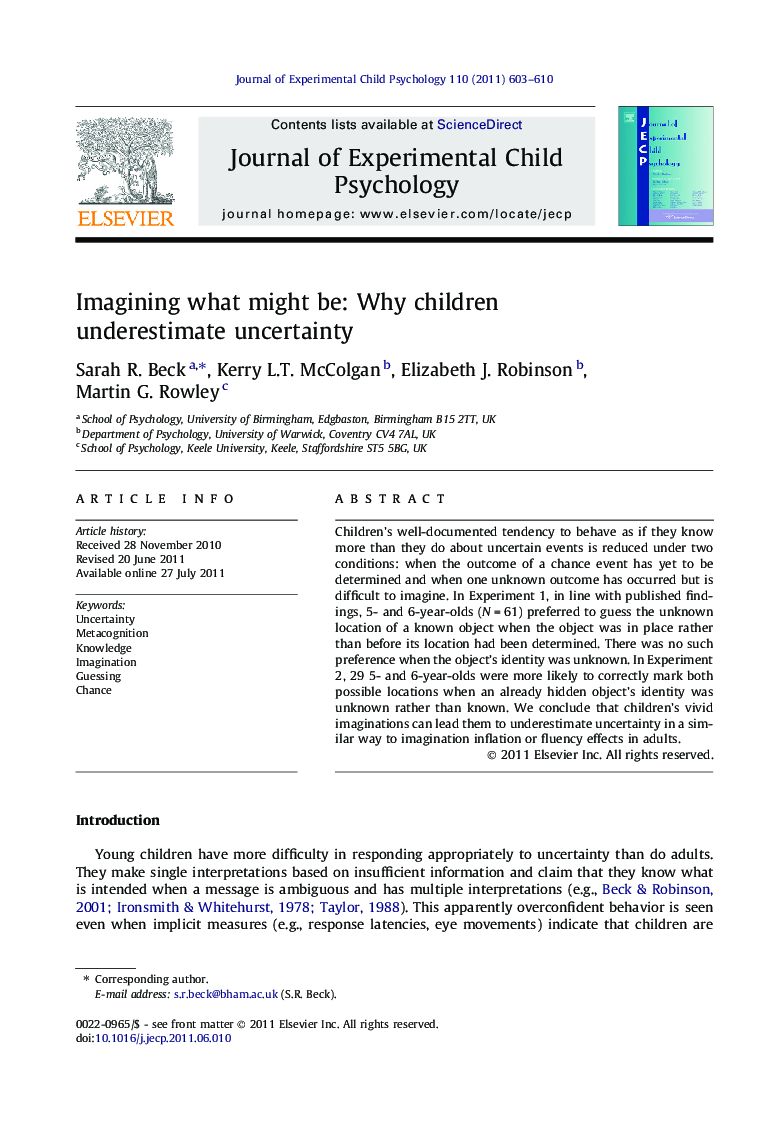| Article ID | Journal | Published Year | Pages | File Type |
|---|---|---|---|---|
| 918360 | Journal of Experimental Child Psychology | 2011 | 8 Pages |
Children’s well-documented tendency to behave as if they know more than they do about uncertain events is reduced under two conditions: when the outcome of a chance event has yet to be determined and when one unknown outcome has occurred but is difficult to imagine. In Experiment 1, in line with published findings, 5- and 6-year-olds (N = 61) preferred to guess the unknown location of a known object when the object was in place rather than before its location had been determined. There was no such preference when the object’s identity was unknown. In Experiment 2, 29 5- and 6-year-olds were more likely to correctly mark both possible locations when an already hidden object’s identity was unknown rather than known. We conclude that children’s vivid imaginations can lead them to underestimate uncertainty in a similar way to imagination inflation or fluency effects in adults.
► Children were influenced by knowledge of an object’s identity in a chance game. ► Knowing the identity they behaved over-confidently under epistemic uncertainty. ► When the identity was unknown, responses to uncertainty were more appropriate. ► Children’s imagination leads to under-estimation of uncertainty.
